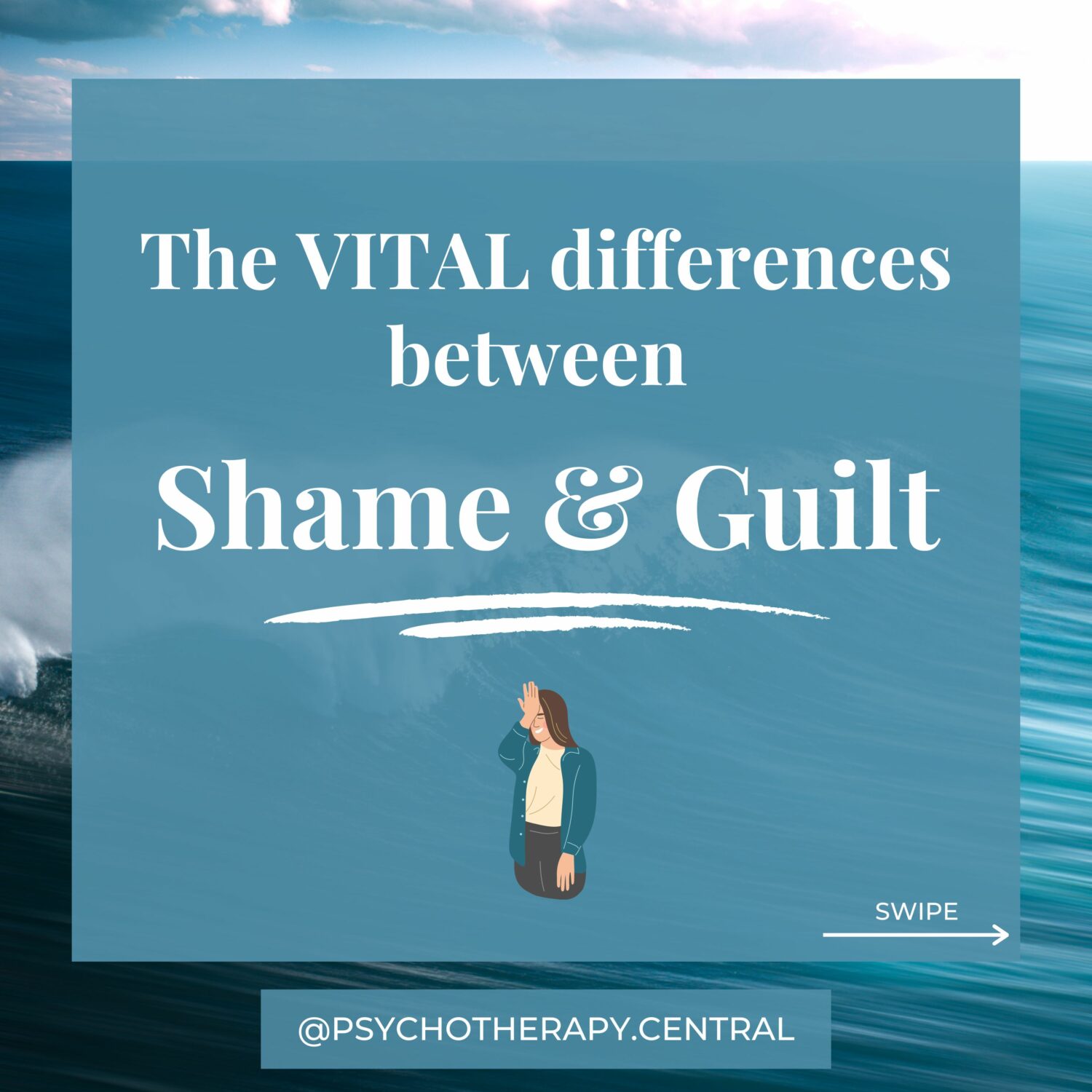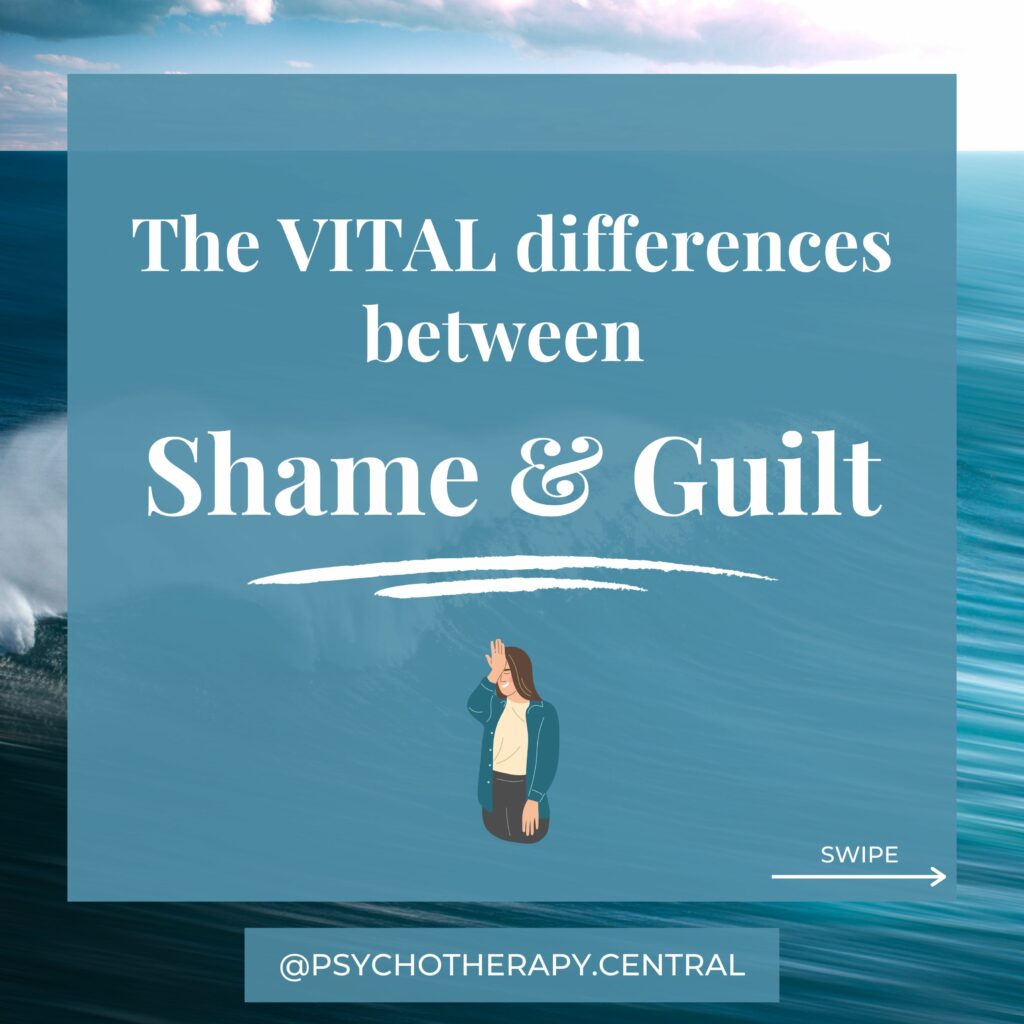In everyday language, we often use the terms shame and guilt interchangeably, but research shows that there is a BIG difference between the two. Shame is more toxic than guilt. Why? Research has shown that shame is more focused on the self.
Shame sounds like, ‘I reversed into a pole, I am such a loser, I can’t get anything right’
Guilt sounds like, ‘I reversed into a pole, I wasn’t looking properly, that was silly, I’ll start double checking from now on’
Guilt can be useful in that it can show us where we are out of alignment with our principles, ideals or moral values. In this example, in principle, I believe all drivers need to be extremely careful in order to preserve life, but I was careless, so I have let myself down. I also believe in spending money wisely and with care, and this car repair will be an expense for my family. The result is that I feel guilt. In this case, these feelings fuel me to drive with more care. I MADE a mistake, NOT that I am a mistake.
The next time you hear yourself using the words “I AM…” and a shame-based narrative, I invite you to turn it into “I DID…” and the specific mistake.
I will be following up with more ways to work with shame this week.
Love Jen


